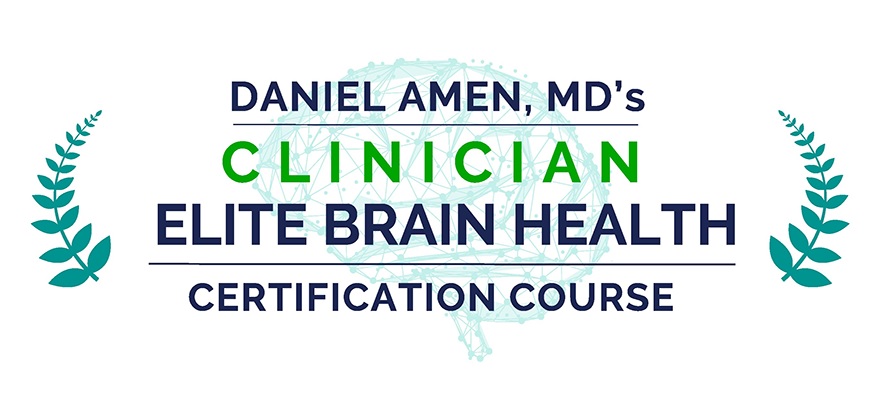
Sit in any room full of coaches and therapists, and one word keeps popping up in conversation: brain. People talk about brain fog, nervous system regulation, trauma and the brain, ADHD brains, and even leadership from a brain perspective. You might notice your own clients using the same language. They want to understand what is going on in their heads, not just how to manage their behavior.
Because of this, more and more helping professionals are intentionally adding brain health education to their toolkits. They are not trying to become neuroscientists. Instead, they want enough grounded knowledge to explain patterns, design better strategies, and help clients feel both less broken and more hopeful.
Here we look at why brain health has become such a popular focus, how it fits inside coaching and therapy work, and what kind of training can help you add it ethically and effectively to what you already do.
Contents
Why Brain Health Is Suddenly Everywhere
Brain talk did not appear out of nowhere. Several trends converged to make it a natural next step for people who already work with emotions, habits, and behavior.
Clients Are Hungry For Brain-Based Explanations
Many clients arrive in sessions with a mix of self blame and confusion. They ask questions like, “Why do I keep doing this even though I know better?” or “Why does my anxiety make no sense logically?” When the only answer is, “You just have to try harder,” they usually feel worse.
Brain education offers a different story. When you can say, “Here is how your brain learns habits,” or “Here is what happens in your brain under chronic stress,” clients begin to see their struggles as patterns in a changeable organ, not proof that they are hopeless.
Science Is More Accessible Than Ever
In the past, neuroscience mostly lived in academic journals. Now it shows up in books, podcasts, blogs, and videos geared toward the public. Your clients are likely hearing bits of information about neuroplasticity, brain regions, and neurotransmitters long before they sit down with you.
Coaches and therapists are noticing that if they cannot help sort and explain that information, someone else will try, often with less training. Brain health education allows you to be the grounded voice in the middle of all that noise.
Brain Language Bridges Different Approaches
Another reason brain health is so appealing is that it transcends one specific modality. Whether you lean psychodynamic, cognitive, somatic, or coaching oriented, you are still working with a brain.
Brain language offers a shared lens that can connect talk therapy, body based approaches, and behavior work. This makes it easier to integrate multiple methods without feeling like you are jumping between unrelated frameworks.
How Brain Health Education Enhances Therapy Work
For licensed therapists, brain health is not a separate add on. It is a way of deepening the work you already do. Here are some of the most common shifts therapists report after adding brain focused training to their practice.
Richer Case Conceptualizations
Traditional case conceptualization already looks at history, beliefs, emotions, and relationships. When you add a brain lens, you start asking additional questions: What might be happening in this person’s brain under stress? How might early experiences have shaped their threat and reward systems? Are there medical or lifestyle factors that might be affecting attention, memory, or mood?
This added layer does not replace psychological theories. It anchors them in an organ that can be supported in very practical ways.
More Effective Psychoeducation
Many therapy models rely on psychoeducation. When clients understand why symptoms happen, they often feel calmer and more willing to try new approaches. Brain education amplifies that effect.
Instead of saying, “Your anxiety is part of the fight or flight response,” you can show how specific brain regions work together during perceived danger and how breathing, movement, or thought patterns influence those areas. Clients often remember these explanations years later because they are grounded in clear images and metaphors.
Integration With Medical And Psychiatric Care
Many therapy clients also work with physicians or psychiatrists. When you understand brain basics, you can communicate more clearly with those providers. You can speak about attention, memory, mood swings, or sleep issues in terms of possible brain system patterns, which can inform medication decisions, lab work, or imaging when appropriate.
This collaborative, brain aware stance positions you as a helpful member of the care team instead of an isolated provider.
How Brain Health Education Strengthens Coaching Work
Coaches work on goals, habits, performance, and personal growth. They do not diagnose or treat mental disorders, but they absolutely work with brains every day. Adding brain health education here also brings powerful benefits.
Better Habit And Behavior Strategies
Coaching often focuses on building new habits or breaking old ones. Brain research has a lot to say about how habits form, why willpower is limited, and what makes behavior change stick.
When you understand reward circuits, cue based routines, and the role of stress in habit loops, you can design coaching plans that respect how the brain actually works. This leads to more realistic expectations and better client follow through.
Clearer Boundaries Around Scope Of Practice
Contrary to what some people fear, brain health education can help coaches stay in their lane, not drift out of it. When you learn about brain based red flags for trauma, mood disorders, or neurological issues, you become better at recognizing when a client needs a licensed therapist or medical professional.
That clarity protects both you and your clients. You can confidently say, “What you are describing sounds like it may involve more than coaching. I want to make sure your brain is thoroughly cared for, so I recommend you also connect with a therapist or physician.” At the same time, you still use brain savvy tools within your coaching scope.
Stronger Credibility With High-Performing Clients
Many coaching clients are professionals, entrepreneurs, or leaders. They are used to hearing about performance optimization and brain efficiency. When you can explain your coaching strategies in terms of attention, decision making, and cognitive load, they often feel more engaged.
Brain health education gives you the language to speak credibly with these clients, especially when you combine it with clear boundaries about what you do and do not address.
What Kind Of Brain Health Education Is Most Useful?
Not all brain related content is created equal. Some is evidence based and clinically tested. Some is opinion dressed up in scientific vocabulary. When you are choosing how to add brain health to your work, quality and structure matter.
Characteristics Of Helpful Brain Training
The most useful programs for coaches and therapists tend to share a few features:
- They focus on clinically and practically relevant neuroscience, not obscure details.
- They connect brain concepts directly to everyday client situations.
- They offer scripts, metaphors, and visuals you can use in sessions.
- They address both lifestyle and psychological influences on the brain.
- They emphasize ethical use within your scope of practice.
When a program checks these boxes, you leave not only knowing more, but also knowing exactly how to apply that knowledge.
The Role Of Structured Certification
Some professionals choose informal learning through books and short courses. Others eventually decide to pursue a more comprehensive certification in brain health, especially if they want to brand themselves around brain informed work.
Certification programs typically bundle together systematic teaching on brain systems, assessment tools, case examples, and practical interventions. They provide a clear learning path and a credential that tells clients, “I have done more than dabble in this subject.” For therapists, this can anchor a specialty. For coaches, it can clarify the brain informed services they offer within their scope.
Practical Ways To Bring Brain Health Into Your Sessions
You do not need to overhaul your entire practice to benefit from brain education. Many coaches and therapists start with small, realistic steps.
Use Simple Brain Metaphors
Begin by introducing a few core metaphors that explain what clients already experience. For example, you might describe the brain’s alarm system and calming system, or the difference between habit brain and decision making brain.
These metaphors give clients something concrete to picture when they practice new skills.
Add Brain-Relevant Questions To Your Intakes
Include basic questions about sleep, head injuries, substances, major medical issues, and long term stress. For therapists, these details may influence treatment planning. For coaches, they may signal the need for referral or collaboration.
Connect Homework To Brain Benefits
When you assign homework, briefly explain how it supports the brain. Instead of “journal every day,” you might say, “This kind of journaling helps your brain organize emotional memories so they feel less overwhelming.” That simple explanation can increase motivation.
Is It Worth Investing In Brain Health Training?
Only you can decide how deeply you want to go into brain health. Some professionals are happy with a basic understanding. Others feel a strong pull to make it a defining part of their work.
As you consider your next step, ask yourself a few questions:
- Do I find myself naturally using brain language with clients already?
- Do my clients ask questions about their brain that I want to answer more confidently?
- Would a structured brain focused program or certification help me feel more grounded and clear about my approach?
- Am I excited by the idea of becoming known for brain informed coaching or therapy?
If you answered yes more often than no, investing in solid brain health education may be a wise move. It can refresh your practice, strengthen your impact, and give both you and your clients a clearer map of what is happening inside the most important organ you work with every day.

